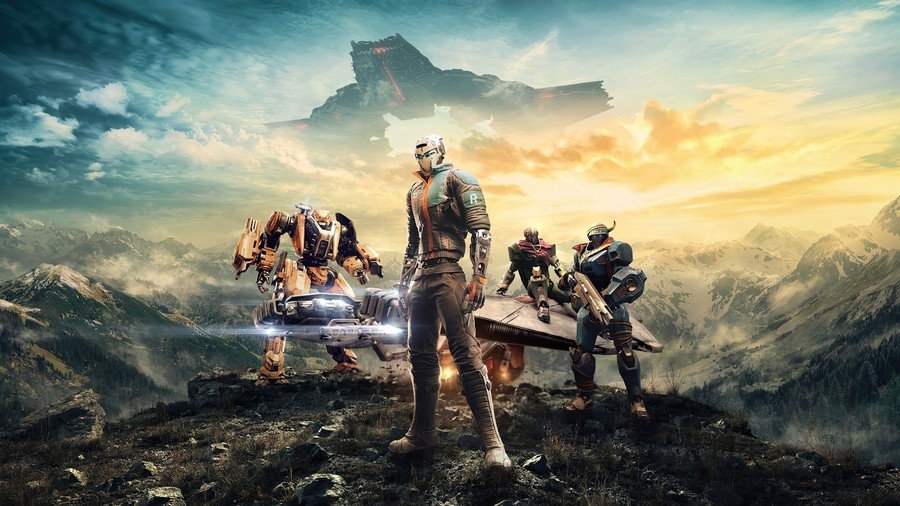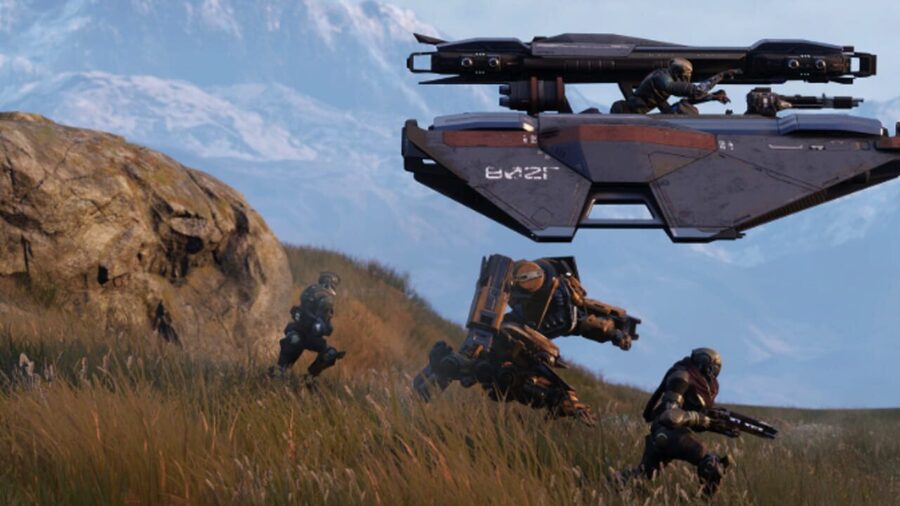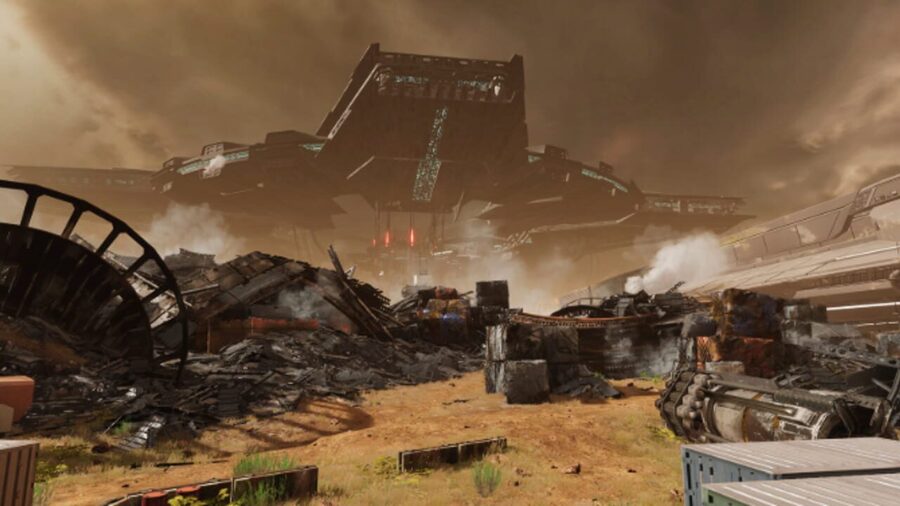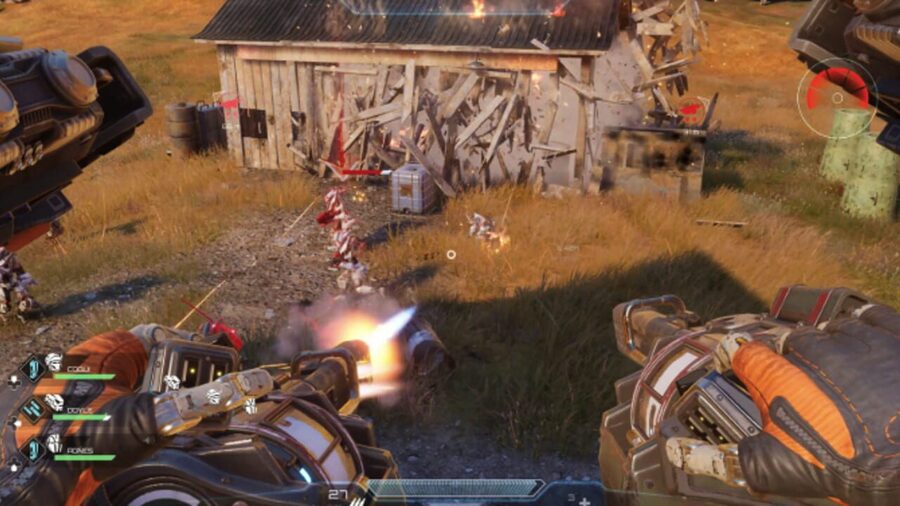
We recently had the chance to chat with Jon Everist, composer of V1 Interactive’s curious hybrid of RTS and third-person shooter: Disintegration. We got to discuss the balancing act between these two genres, the rather heart-breaking passing of music legend Ennio Morricone, and the struggle to maintain humanity amidst a synthetic world. Let's dive in!
Push Square: In what ways did this uncommon marriage of FPS and RTS influence the music you wanted to make for the title? Did you try and develop different sounds for each area of the game, or was it a more balanced, blended approach that you wanted to favor?
Jon Everist: I’ve made music for both RTS and third-person action games which are fairly similar to first-person shooters; one of my main concerns for RTS style games is that they can be played entirely differently depending on the person. Someone (like me) may just try to plow through a level as quickly as possible, whereas other more strategic people (not me) will take their sweet time. This changes how music is experienced in a game so I always feel the technology driving the music is quite important. Combining the two genres is a balancing act.
Early on in development, I worked with audio lead Jack Menhorn and creative director Marcus Lehto to decide how to cover the different locations in the story. How the music system behaves in the game is really dependent on how involved I can be with engineering throughout the process. Disintegration was made by a small team of only about 30 people, so we knew we wanted to stretch our resources as much as possible and cover as many scenarios as we could without burdening the design or engineering teams. In the game, there are different ‘biomes’ or locales that use distinct musical palettes - the rugged west, oppressive futuristic cities, and the more desolate landscape of Iceland.

In what ways did you develop the sound for the title around the main theme? Since that was the first piece you had prepared, how did that dictate the direction you took the score. Is it the direction you had envisioned when you first started? Or did things shift along the way?
When I’m starting a project I always like to write a suite of music that explores some of the ideas I’ve talked about with the director, artists, and writers. This is my chance to show them my personal take on the world they’ve pitched to me. I think composers are hired partly as interpreters, translating the project into music through our own vocabulary. The suite of music is often a chance for me to break a director’s reliance on temporary music or references that they have been clinging to. This suite often turns into the Main Theme.
From the beginning, it was clear that Marcus enjoyed strong, theme-based scores, and particularly liked piano and big, bold brass. I started the main theme with solo piano playing our main theme motif, and then let the track unfold to introduce our orchestral elements. Luckily, he loved the first pass of the main theme, and that set the tone for the rest of the score. Video games are constantly evolving pieces of art though; shifting, changing, and growing. The further along we went with the score, the more the team wanted to introduce synthetic elements into it, which made sense because this is ultimately a battle between the synthetic integrated forces called the Rayonne, and people who are struggling to regain their humanity. I ended up using a lot of synths to cover the enemies in the game, and relied more on acoustic instruments when representing the heroes, like in our Humanity Theme, or Romer’s Theme.
What influences did you look to when you were dreaming up the sound for the title? Movies, other music, etc. Any unexpected sources that might not be apparent at first glance?
I try my best not to be too referential or influenced when I’m starting a score. When I’m starting a project I actually avoid listening to reference music as much as possible. For me, it tends to distract me from the creative process of letting things unfold and flow naturally. Though of course my musical vocabulary is made up of all the scores I’ve absorbed over the years. I’ve actually just learned about his passing as I’m writing this, but Ennio Morricone has always been an inspirational figure to me, simply because he approaches his scores boldly.
Even though it’s quite different instrumentation, tracks like Scrap Hunting or Costa Nueva, which are largely comprised of strings and modular synths, draw from my love of Morricone’s scores and his use of texture, effects, and unusual instrumentation. Goldsmith is also a composer who is a major influence of mine. I don’t think a hybrid score (synths and orchestra) needs to always be big and aggressive. Modular synths and softer melodic strings are a very pretty combination, and can still bare teeth when needed.

In what ways did differing kinds of units impact the approach you took with scoring the game? What approach did you take to differentiate Romer from those he controls in the RTS portion of the game?
Romer is the leader of this crew, so he gets the majority of the musical focus throughout the game. As the game unfolds, however, we learn more about the other team members and their backgrounds and can build on our empathy for their stories. It might be easy to think of your team as expendable when you’re out doing missions, but hearing their backstories during the cutscenes and downtime between missions is an opportunity for the player to feel connected to them.
What unique aspects of the world did you find yourself latching onto when it came time to craft the sound for everything? At a brief glimpse the game gives off vibes off cyberpunk mixed with The Matrix, but in what ways did you use the music to dig deeper than that surface level?
Disintegration is all about what it means to be human. In a technologically advanced civilization where humans can become almost completely integrated with technology, at what point do they lose their humanity? This is most obvious when we compare themes like Black Shuck’s Theme and Iron Cloud Theme to the Humanity Theme or the Main Theme. Musically, when I’m referencing the Rayonne’s, evil forces who represent complete integration with technology, I wanted to strip as many human instruments away as possible. Black Shuck’s theme is very chaotic and comprised of mostly synths and corrupted recordings. Themes that represent the resistance or humanity are largely orchestral.

And finally, as my concluding question for my first-time interviews, I always enjoy asking about what brought you to the industry. How’d you find yourself composing for games? Was it by design? Or happenstance?
A combination of both! It’s quite a long story so I’ll give a short version. I’d been making music from a very young age and was in bands and producing music pretty much my whole life. Video games (Final Fantasy, Chrono Trigger) are what actually got me interested in music in the first place. I never thought I could make video game music myself because I wasn’t classically trained, so I never really pursued it. After many years of producing music as a side hustle, I decided to quit my job to go back to school to study music for video games. I met an incredible network of people making games and finally got my training and confidence writing orchestral music. I was super lucky with a break after someone introduced me to Harebrained Schemes and I got to write some music for Shadowrun. The rest is history!
And there we have it! A peek behind the curtain of what it was like to score Disintegration. We'd like to thank Jon for taking the time to talk with us. And of course, we recommend you go and check out the score because it's fantastic! The soundtrack's available on most digital platforms if you're curious about it!





Comments 1
Ah yes, the most important job of a game, being a composer.
Show Comments
Leave A Comment
Hold on there, you need to login to post a comment...